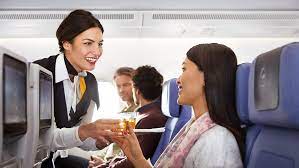
About Airline Services
Airline services refer to the transportation of passengers and cargo via scheduled or non-scheduled flights between various domestic and international destinations. Airlines use modern aircraft equipped with advanced navigation and communication systems to ensure safe and efficient travel for their passengers. They provide a range of amenities such as in-flight entertainment, comfortable seating, and food and beverage service to enhance the passenger experience. Airlines operate on a hub-and-spoke model where they have a main hub or base where passengers can connect to flights to other destinations. This allows airlines to offer a wider range of destinations and increase their operational efficiency. Airline services play a critical role in facilitating travel and connecting people and businesses across the world, and are an integral part of the global transportation network.
Course Overview
An airline service course provides students with a comprehensive understanding of the various aspects of the airline industry. The course typically covers topics such as the history, structure, and economics of the airline industry, aviation safety and security, airline operations, aircraft and aviation technology, airline marketing and revenue management, airline customer service, and airline financial management. Students will learn about the latest trends and developments in the industry, including advances in aviation technology, new business models, and emerging markets. The course is designed to prepare students for careers in the airline industry or related fields, such as airport management, aviation consulting, or government regulation. Graduates of the airline service course will have a solid foundation in the key concepts and practices of the airline industry, and will be well-equipped to succeed in a dynamic and challenging field.
Specific Requirement
To enroll in an airline service course, students typically need to have completed high school or equivalent education. Many courses also require a certain grade point average or specific coursework in related fields such as business or engineering. The coursework in an airline service course typically covers topics such as aviation safety and security, airline operations, aircraft and aviation technology, airline marketing and revenue management, airline customer service, and airline financial management. To gain practical experience, many airline service courses require students to complete an internship or fieldwork experience in the airline industry. Some courses may also prepare students to earn professional certifications, such as a Commercial Pilot's License or an Airline Transport Pilot Certificate. Finally, since the airline industry is global, students may be required to have proficiency in one or more foreign languages. These requirements help ensure that students have the necessary knowledge, skills, and experience to succeed in the dynamic and challenging field of airline services.